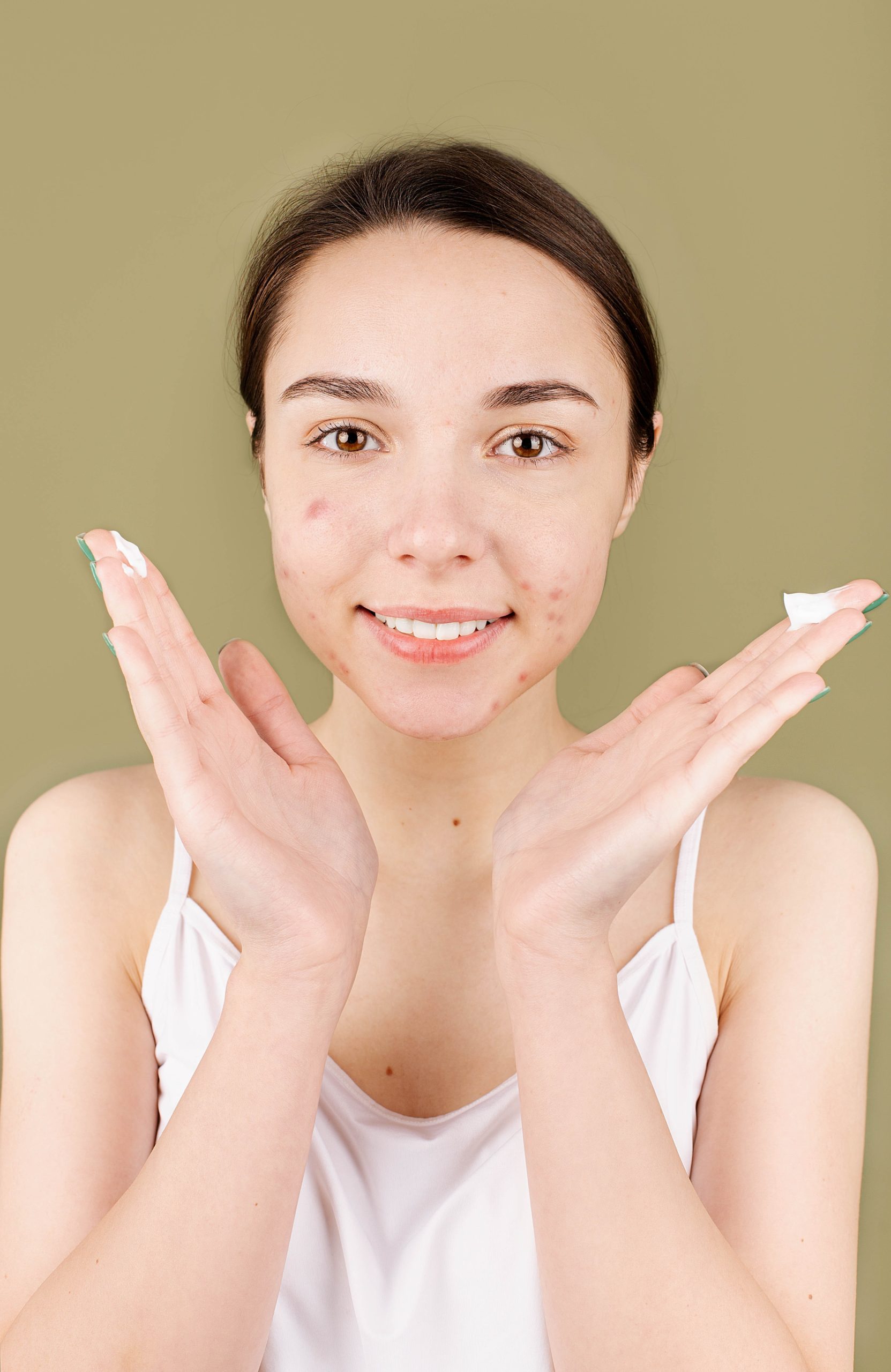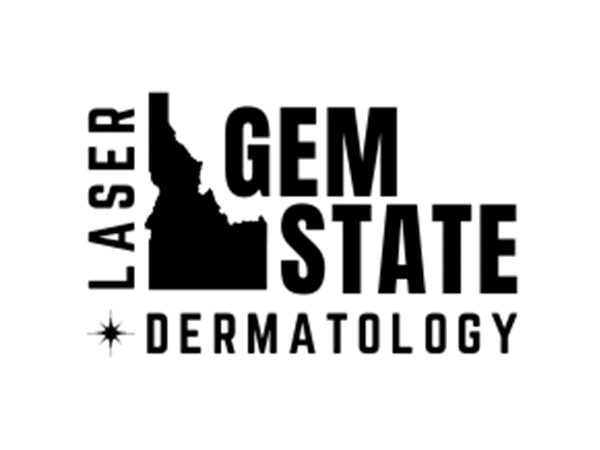
Acne
CAUSES: The skin’s oil glands produce a material called sebum, which is hormonally discharged onto the surface of the skin. In acne, the gland gets blocked by oil and dead skin cells causing bacteria and sebum to build up. Sometimes the wall of the oil gland breaks and spills sebum within the skin. This irritates the skin tissues and causes the redness, swelling, and pus known as a pimple. In mild acne, only a few glands break open; in severe acne, many do. Oil glands also may become plugged, forming blackheads and whiteheads. Stress is not a cause of acne, but picking, squeezing, or rubbing pimples can make it worse.
AGE: Acne usually begins during teenage years, gradually worsens, and then over time, improves. How long you will have acne is impossible to predict. It is not unusual for acne to persist or start in one’s 20s or 30s, especially in women. Acne is influenced by hormones and may vary cyclically with one’s menstrual cycle.
SKIN HYGIENE: Dirt does not cause acne. You cannot scrub acne away, and too much washing and scrubbing can cause skin irritation. Gently wash affected areas with salicylic acid or benzoyl peroxide acne wash (or a combination of both) 1-2 times daily. Do not pick or squeeze pimples. This can make acne worse and damage the skin. Plus it can lead to infections. It is safe to cover acne with makeup and moisturizers, but all products should be non-comedogenic (meaning they do not clog pores).
DIET & ACNE: There are now new studies showing that there may be a link between acne and eating sugary foods with a high glycemic load. Such foods include candy, cookies, sugary drinks including soda, processed foods, and those with simple sugars such as white bread and pasta. Reducing these types of food in your diet may improve your acne. Foods with a low glycemic load are thought to decrease your risk of acne. These foods include unprocessed foods such as fresh fruits, vegetables, lean meats, fish, and seafood. There are also studies to suggest that eating foods high in omega-3 fatty acids and antioxidants may improve acne.
TREATMENT: Unfortunately, there is no medical cure for acne, although it usually can be controlled. This often requires treatment for many months to years. Acne therapy can include topicals and/or oral medications. Sometimes light sources, microdermabrasion, and/or acne surgery are used. It is important that you follow all directions to ensure that the medication(s) have the best chance of working. All treatments have risks and you should read the information provided by your pharmacy that outlines the use and risks associated with your prescription(s). If you use makeup, put the topical on first and let it dry. Apply the topical medication to the entire area of the skin with acne, not just a few pimples. Once any treatment for acne is started, it takes 2-4 weeks to start seeing improvement. It takes 6-8 weeks before the maximum benefit can be seen. Therefore, it is important to be patient and persistent in using the medication(s) for 2 months.
SCARRING: Acne is temporary, but it can leave permanent scarring. The larger a pimple is, and the longer it lasts, the greater the chance for a scar to develop. It is very important to treat acne aggressively to prevent further scars from developing. Severe acne may require therapy with Accutane, a derivative of Vitamin A that can be very effective in treating acne.
ORAL ANTIBIOTICS & BIRTH CONTROL PILLS: If you are taking oral antibiotics and birth control pills (BCP) simultaneously, there is a theoretical risk of decreased effectiveness of the birth control pills. With the exception of Rifampin, this theory has never been proven and consequently, we do not routinely require a second form of birth control while on commonly used antibiotics like erythromycin, tetracycline, doxycycline, minocycline or ampicillin. Remember that no BCP is 100% effective in preventing pregnancy. One of the main causes for failure of BCP includes missing a pill(s). If you want to be safe, consider using a second form of contraception (condoms, etc.). If there is a chance you are pregnant or are planning on becoming pregnant, please notify our office immediately so we can stop/avoid medications that could be harmful to the baby. If you have any other questions or concerns, please do not hesitate to call our office.
We're Here Whenever You Need Us
Phone
Fax
(208) 424-5072
Open Hours
Mon - Fri: 7:30AM - 5:00PM
Address
Boise, ID 83706

